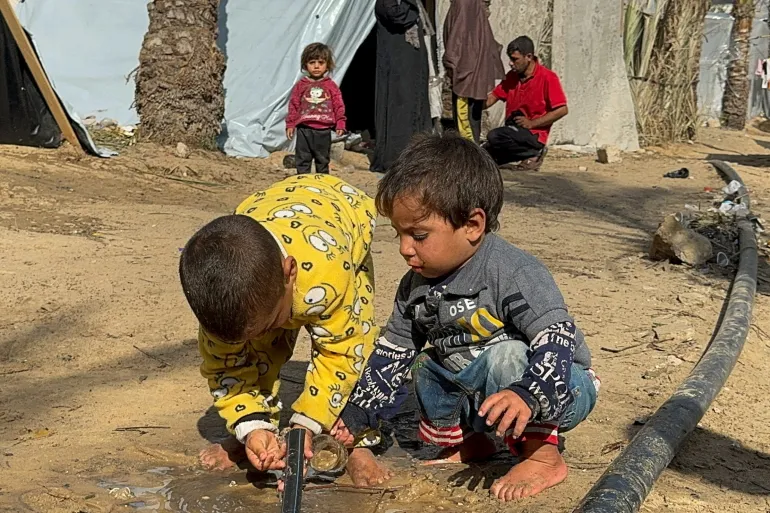A report published by the International Labour Organization (ILO) has stated that Palestinians have seen their employment reduced by two-thirds in the Gaza Strip – equivalent to 192,000 jobs – since the outbreak of the war.
The report, which was centred on how Israel’s war on Gaza has affected the labour market and livelihoods of those living in the occupied Palestinian territories, stated that the “ongoing hostilities in Gaza are incomparable to previous ones, as the destruction brought upon lives and livelihoods has been colossal.”
The ILO also stated that the spillover effect on the West Bank’s economy has been significant, with a one-third reduction in employment – equivalent to 276,000 jobs.
The report warned that the potential long-term impact of job losses would become more pronounced if the post-conflict reconstruction process in Gaza is sluggish or if Israel maintains its restrictions on the West Bank.
Speaking to a news agency from Geneva, Peter Rademaker, Deputy Regional Director for Arab states at the International Labour Organization said that Palestinians in Gaza “will be in poverty for many months and years to come” because of Israel’s war on the enclave.
“The labour market was already very depressed in the occupied West Bank and Gaza even before the war. In Gaza, unemployment was sky-high because of years of the blockade. So, we started from a very difficult situation.
“[As the war goes on,] many people in Gaza and also West Bank will have no income, no wages. Nobody’s going to pay them any money and they will increasingly have to rely on international assistance.”
Peter Rademaker
He added, “Unfortunately, the authorities have no public financing to provide social assistance, so it’s going to have to come from the outside … As we all know, many crises are raging globally, and the chances of Palestine receiving the international aid it needs are not necessarily very high.”
Very Limited Access To Potable Water In Gaza

Also on Tuesday, UNICEF disclosed that water and sanitation services are at the point of collapse in Gaza with large-scale disease outbreaks looming.
According to humanitarian standards, the minimum amount of water needed in an emergency is 15 litres (four gallons), which includes water for drinking, washing and cooking. For survival alone, the estimated minimum is three litres per day.
However, according to UNICEF estimates, recently displaced children in the southern Gaza Strip are accessing only 1.5 to 2 litres of water each day, well below the recommended requirements just for survival.
Using unsafe water and lack of hygiene is a “dramatic” risk factor for children, who are more vulnerable to waterborne disease, dehydration and malnutrition.
“Access to sufficient amounts of clean water is a matter of life and death, and children in Gaza have barely a drop to drink,” Executive Director Catherine Russell said.
“Children and their families are having to use water from unsafe sources that are highly salinated or polluted. Without safe water, many more children will die from deprivation and disease in the coming days,” she added.
“We are doing everything we can to meet the needs of the people in Gaza, but the equipment and supplies we’ve managed to provide are far from enough.
“The constant bombing, along with the restrictions on materials and fuel allowed into the territory, are preventing critical progress. We urgently need these supplies to repair damaged water systems.”
Catherine Russell
Jagan Chapagain, Secretary-General and CEO of the International Federation of Red Cross and Red Crescent Societies, also described the situation in Gaza as “desperate.”
Chapagain added, “Aid delivery is becoming increasingly more difficult due to the ongoing shelling and lack of fuel and supplies.”
READ ALSO:MasterCard, MiDA Commit $6.1 million to Rice Value Chain























